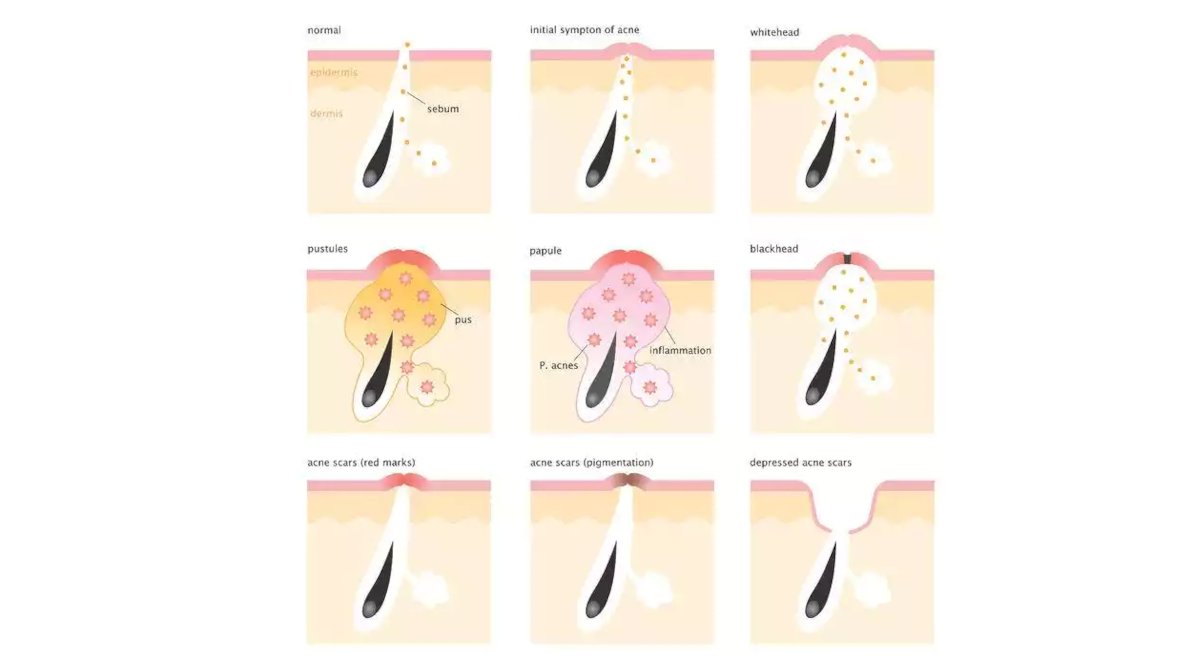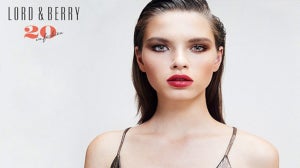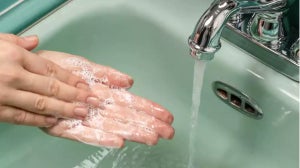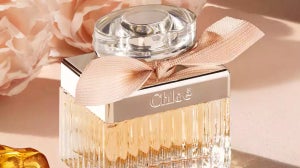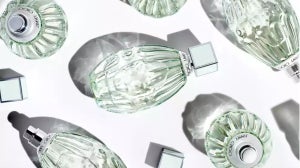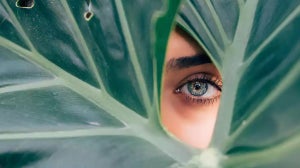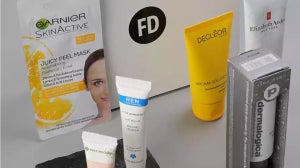Acne is one of the most common skin issues and around 80% of teens will get it at some point. However, it also affects many adults and can flare up at any time, leading people to wonder what they can do to treat it.
Many adults experience small outbreaks of acne during stressful times and some women experience symptoms of acne just before their period. Whilst this is entirely normal, it is still frustrating and finding a treatment as quickly as possible is always important.
Acne can be very sore and if you're suffering now, you'll know how tempting it is to pick at spots or burst them in the hope that they will go away faster. Unfortunately, as satisfying as spot popping is, it isn't going to do much good for your acne!
And so, to save you from yourself, we have put together an ultimate guide to acne, covering what it is, how it is caused and, most importantly, how you can treat it and prevent further outbreaks.
Jump to:
- What is acne?
- What causes acne?
- What do hormones have to do with acne?
- Why do some women still get acne during periods?
- How does testosterone affect acne flare ups?
- How to get rid of hormonal acne
- How can I treat my acne?
- How to get rid of clogged pores and spot blemishes
- Using warm water
- A homemade steam treatment
- Simple spot treatments for quick relief
- Topical acne treatments
- Benzoyl peroxide
- Topical retinoids
- Topical antibiotics
- Azelaic acid
- Antibiotic Tablets
- Hormonal therapies
- The pill
- Co-cyprindiol
- Isotretinoin
- Alternative treatments
- How do acne scars form?
- Can acne scars be treated?
- How acne scars can be removed
- Can acne and acne scars cause depression?
- Which makeup products are best for me?
- Which make up products should you use with acne?
- What is the best type of cleanser for acne?
- What is the best type of foundation for very oily skin?
- What is the best type of cleanser for very oily skin?
- What is the best type of moisturiser for very oily skin?
- How to get rid of acne permanently
- How can I prevent acne recurring or getting worse?
- The importance of sunlight for acne
- Drink plenty of water to hydrate your skin and prevent acne
- How protein helps build plump skin
- Cleansing and moisturising
- Exfoliators
What is acne?
Though the main symptom of acne is spots, acne is more than just your average whitehead. Acne is a persistent recurrence of all kinds of different spots and can appear as whiteheads, blackheads, red lumps and even small cysts, depending on the type of acne you have.
There are a few basic types of acne:
- Mild acne is fewer than 20 whiteheads or blackheads and fewer than 15 inflamed bumps
- Moderate acne is more than 20 but fewer than 100 whiteheads or blackheads and 15 - 50 inflamed bumps
- Severe nodulocystic acne presents a deep red or purple acne with multiple inflamed cysts and nodules
- Acne Conglobata is a severe form of acne that can affect your neck, chest, back, arms and buttocks
- Acne Mechanica is caused by heat and friction against the skin and is named because it appears most on sports people who wear caps and helmets that press against their forehead
All types of acne can be treated, and even if you are worrying that your skin will never be beautiful, the right treatment should leave you clear-skinned and scar free. The most reassuring thing about acne is that for most teenagers it will clear up and be gone within a few months ' if not sooner.
What causes acne?
At the most basic level, acne is a condition where your spots become infected with bacteria. This is why acne is more than just the occasional whitehead.
Here's how it works.

Image Credit: BioClarity
Your skin is covered in pores which each have a small hair and a tiny sebaceous gland which produces sebum, a natural oil that pushes dirt out of the pores. When you get a spot, it is because your sebaceous glands are producing too much sebum and it has blocked up the pore. This can have two results: the first is a blackhead where the pore remains open, the second is a whitehead where the pore remains closed.
So far, these are just normal spots. The change comes when bacteria infects the spots and causes inflammation of the skin. This can cause more spots to appear as well as cause some existing spots to swell up and become pustules or papules which are very sore and unpleasant.

What do hormones have to do with acne?
Hormones have everything to do with acne, because it is your hormones that control the activity within your glands. During your teenage years, when you suddenly have an influx of hormones, the sebaceous glands beneath the skin can overreact and produce much more sebum. This causes you to get more spots.
For teenagers who are going through some dramatic bodily changes, acne is normally a symptom of growing up and will calm down once your body has settled into being an adult. This is why for the vast majority, acne may come and go throughout your teenage years, but is very likely to recede once you reach your 20s.
Why do some women still get acne during periods?
Unfortunately for us women, periods mean that our bodies are constantly going through hormonal change as we ovulate and then bleed each month. While you are a teenager, the problem is that you are gaining many more hormones in your body; for women going through their monthly cycle, it's a little more complicated.
How does testosterone affect acne flare ups?
Over your monthly cycle, your hormones fluctuate and are rebalanced. You begin your month with fairly level hormones, but during ovulation you get a spike of oestrogen as well as an increased amount of progesterone and testosterone. It is likely that the spike of testosterone is what causes your acne breakout a couple of days later. Then, the progesterone takes over the oestrogen and everything returns to normal again by the end of the period.
This fluctuation in hormones may change slightly month to month so that in some months your body accidentally produces a little more testosterone and you get spots. While this is very irritating, it's unlikely to cause any further problems (other than your standard PMS/ PMT). However, if you are worried, do go to see your doctor for some more information.
How to get rid of hormonal acne
If your acne is getting out of hand each month, you can consult your doctor to find out more about what can be done. For many women, choosing to go on the contraceptive pill is an option as this will level out your hormones and prevent the monthly fluctuations occurring. However, this option isn't for everyone so speaking to a medical professional is always best to see what else can be done.
The best thing for you to do is make sure that you are cleansing your face each day and are properly removing your make up. This will ensure that your pores are as clear as possible to reduce the chance that they may become spots.

How can I treat my acne?
How you treat acne depends upon how serious your acne breakout is. However, there are a number of rules that everyone should follow to help their acne clear up:
- Try to minimise how often you touch your face as this will only spread the bacteria
- Don't be tempted to squeeze out the spots as this may lead to scarring
- Wash your face with water and a flannel, being very gentle
- Don't scrub your skin or attack it with soaps that might sting
- Don't use toothpaste to dry out your spots ' this will dry you skin and won't necessarily help
How to get rid of clogged pores and spot blemishes
If you only have a few spots and clogged pores, you might not yet have a full acne breakout. This is a good time to get started on cleansing your skin. As these are very gentle treatments, you can use them at any stage of your acne breakout to help soothe your skin.
Using warm water
- Use lukewarm water to gently remove all your make-up
- A flannel or muslin cloth will help work the makeup away
- Don't be tempted to scrub too hard
- Try using a cleanser if you like, but try not to use an abrasive product as this will inflame your skin
A homemade steam treatment
- First wash your face with lukewarm water as above
- Give yourself a steam treatment by filling bowl with boiling water
- Put a towel over your head and lean over the bowl to let the steam soak into your skin
- You can add a few drops tea tree oil to the water to help clear your acne
- After a few minutes (10 minutes max.), use a flannel to rinse your face with cool water to get rid of any dislodged dirt
You can use these treatments on a regular basis to help prevent spots too.
Simple spot treatments for quick relief
There are all kinds of spot treatments available that can help to reduce the number of spots you have and clear your skin before the acne gets a chance to develop. These include:
- Foaming washes
- Patches
- Gels
- Cleansers
- Scrubs
All of these methods will help to clear up spots before acne symptoms appear, and will also help to prevent further spots from appearing.
Topical acne treatments
Many cases of acne can be treated topically and should clear up within a few weeks. You can see your pharmacist or doctor for a recommendation on which topical treatment is best for you. There are also several over the counter treatments you can use.
Benzoyl peroxide
This cream is an antiseptic and anti-inflammatory, so it helps to tackle the bacteria causing the acne while reducing the symptoms.
Topical retinoids
These treatments work in a similar way to an exfoliator and may sting a little on application. They work by removing the dead skin cells clogging your pores and causing the spots.
Topical antibiotics
Like all antibiotics, these topical antibiotics kill the bacteria on your skin that is causing the acne to flare. Often, a 6 - 8-week course is prescribed. After this, you should take a break to prevent the bacteria becoming resistant to the antibiotics and getting worse as a consequence.
Azelaic acid
Often used as an alternative to benzoyl peroxide and retinoids, azelaic acid removes dead skin cells and kills the acne bacteria. It usually takes a month before you will see improvement.
Antibiotic Tablets
If your acne is more severe, it is likely that your doctor will prescribe you antibiotic tablets as well as a topical treatment. Usually, these tablets take around 6 weeks before you notice any results, but you can take them for up to 6 months if necessary ' much longer than topical antibiotics.
Hormonal therapies
As acne is to do with the balance of hormones in your body, it makes sense that hormone treatments are widely used by women, especially. The most common form of hormonal therapy is the contraceptive pill, but there are other therapies too.
The pill
For girls and women who suffer with acne ' especially around the time of their periods ' hormonal therapy may be a good option. The combined contraceptive pill can really benefit you and your doctor may suggest it even if you are not sexually active. It may take up to a year before the full benefits are noticed.
Co-cyprindiol
If antibiotics aren't working to help your severe case of acne, your doctor may suggest co-cyprindiol. This is a hormone therapy that reduces the production of sebum to minimize the risk of getting spots.
However, this hormone treatment does come with a slightly increased risk of breast cancer and can cause some side effects including bleeding and spotting between periods, loss of interest in sex, mood swings, headaches, sore breasts and changes in weight.
Isotretinoin
This is a medication that can be prescribed for serious cases of acne. It works by:
- Reducing the amount of sebum produced
- Decreases the amount of bacteria on the skin
- Reduces redness and swelling
- Prevents follicles becoming clogged
However, it does come with some potentially serious side effects so it is only prescribed when other methods haven't worked. Your acne may get worse in the first week or so of the 4 - 6-month treatment but should show signs of improvement from there on in.
Alternative treatments
As well as pharmaceutical treatments, you can also get treatments such as chemical peels, light therapy and comedone extraction. However, you should approach these methods with some caution.

How do acne scars form?
Picking at spots or washing aggressively using a flannel can cause permanent acne scars. Similarly, scratching when your acne is itchy, rather than using a soothing lotion or gel, can lead to breakages in your skin that may scar.
There are 3 types of acne scar:
- Icepick scars: small, deep punctures in the skin
- Rolling scars: scar tissue under the surface which gives an uneven appearance
- Boxcar scars: depressions that look like small craters on the skin
The best thing you can do to prevent acne scars forming is to avoid touching your skin as much as possible. If your skin is dry and irritated, try not to wash it more than once a day, and do make use of moisturising gels and lotions to help hydrate your skin.

Can acne scars be treated?
All of these types of scar can be treated to some extent, improving their appearance, even if the scar itself cannot be removed. Though the NHS does not usually provide scar treatments, you can find private treatment options through the British Association of Aesthetic Plastic Surgeons.
Unfortunately, if you are currently suffering with an acne breakout, you won't be able to do anything about your scars until your skin clears up. However, once your acne has gone, you will be able to improve the appearance of most scars.
How acne scars can be removed
While most procedures don't actually remove the scar itself, they do hide the effects of the scar by making the skin appear to be more level and even. There are several options for this and your surgeon will recommend the best treatment for you.
- Dermabrasion
- Laser treatment
- Ablative laser treatment
- Non-ablative laser treatment
- Punch techniques
- Punch excision
- Punch elevation
- Punch grafting
- Subcision

Can acne and acne scars cause depression?
People who suffer with serious acne and have lots of scarring may be susceptible to depression because they feel embarrassed by the way they look, often becoming socially reclusive as a result.
If you find that you are avoiding social occasions because of your acne, you should see a doctor to talk about how you are feeling. Talk therapies are useful for communicating your feelings, but you may also be recommended cosmetic surgery to help clear your scars.
Learning which make up you can use with your acne and how to cover your scars may also help to boost your confidence.
Which makeup products are best for me?
When you are suffering with acne it is very tempting to pile a thick layer of make up on to hide your spots. However, the wrong foundation can make your acne far worse and slow down your recovery process.
Which make up products should you use with acne?
Not all make up is bad for acne. The key is finding products that won't block your pores and make the spots worse. A mineral-based and/or oil-free foundation is always best as these products will sit on top of your skin without sinking in too deeply. They are also much easier to remove at the end of the day with a gentle warm water wash or cleanser.
Some foundations, like Clinique Anti-Blemish Solutions Liquid Foundation may also help to cleanse and nourish your skin, preventing acne and spots forming. Similarly, swapping your regular foundation for a tinted BB cream such as Clarins BB Skin Perfecting Cream SPF25 should help to reduce instances of acne and treat spots.
What is the best type of cleanser for acne?
When you are suffering with acne, lots of cleansers can make your skin feel sore. Finding the right cleanser to soothe your skin and help alleviate symptoms is key to reducing redness and swelling.
However, there are cleansers suited to acne sufferers on the market too.
Cleansers containing tea tree could be a good place to start as the tea tree oil may help to prevent more spots emerging. Dermalogica also offer a variety of cleansing products that are gentle on your skin. Start with their Clear Start Foaming Wash, you can use it anywhere you are experiencing spots - just rise your skin with warm water after use.
What is the best type of foundation for very oily skin?
Finding the right foundation for oily skin can be difficult as you don't want a product that will dry your skin out completely, but also don't want to add more oils. Mineral-based foundations will always work best for you and you might also like to try some of the foundations recommended for use with acne.
Try going for a matte foundation, oil-free if possible. This will help to reduce the shine of your skin and won't slip over the course of the day. Products such as L'Oreal Infallible 24 Hour Matte are worth a try, though you will need to use a cleanser to remove it at the end of the day. You may also wish to try products from Lily Lolo which use only natural ingredients and sit lightly on your skin.
What is the best type of cleanser for very oily skin?
One of the best products on the market at the moment is micellar water. Micellar water is a very gentle cleanser that helps to lift dirt and excess oil from your skin without you having to scrub.
Pacifica Kale Water Micellar Cleansing Tonic is a good place to start if you are new to micellar water. The kale extract provides nutrients to your skin and leaves it soft and hydrated without being oily.¶ÿ
You could also try Clarins Loyalty Skin Cleansing Duo For Oily Skin. This isn't a micellar water, but uses a two step cleansing process to clear your skin and then tone and revitalise. Similarly Clinique Clarifying Lotion 3 is perfect for clearing the excess oils and dead skin cells that lead to spots breaking out.
What is the best type of moisturiser for very oily skin?
It might be counter-intuitive, but even oily skin can become dry and irritated, especially after an outbreak. However, finding a moisturiser to suit your oily skin can be a little harder to do. A gel moisturiser such as Elemis Instant Refreshing Gel will sit lightly on your skin and won't make your skin shiny or oily. You could also try Clinique Dramatically Different Moisturising Gel which is oil-free.
A lotion moisturiser like Olay Complete Lightweight Day Fluid for Normal/Oily Skin SPF can help to clear your skin using vitamins B3, E and Pro-V B5. Similarly Nakin Anti-Ageing Matt Formula Face Cream contains the balance of nutrients to prevent your skin feeling greasy, while plumping it up to prevent wrinkles appearing.

How to get rid of acne permanently
Unfortunately, there is no permanent cure for acne and you may get a recurrence at any time of your life. However, it is reasonable to expect that you can make your acne much less severe and keep your skin as healthy as possible.
How can I prevent acne recurring or getting worse?
Almost everyone gets a spot breakout every now and then but you can help your skin stay in top condition with a few simple lifestyle changes.
The importance of sunlight for acne
Your skin is where most Vitamin D production happens in your body. Allowing yourself at least 15 minutes in the sun (or longer on a cloudy day) will help to boost your Vitamin D production, which in turn will help to control the amount of acne-causing bacteria on your skin.
Many people in the UK and other northern countries are deficient in Vitamin D, so it may be worth trying a supplement if you think you are not getting enough. The paler your skin is the more likely you will be able to produce enough Vitamin D, so if you have a darker skin tone, it might be worth going on Vitamin D supplements anyway as it will take much longer for you to produce Vitamin D naturally.
Drink plenty of water to hydrate your skin and prevent acne
Drinking water is always going to be good for you and by keeping your skin in excellent condition, you will avoid having as many spot breakouts. Unsurprisingly, water is the best way to hydrate your skin, keeping it plump and helping to hide any acne scars you may have.
How protein helps build plump skin
Just as water is always going to help, eating a balanced diet will also ensure that your skin is kept in top condition. The main ingredient for good skin is collagen, which your body makes with broken down proteins or amino acids. This is why eating a balanced diet with plenty of lean proteins can help your skin feel rejuvenated.
Cleansing and moisturising
Maintaining a good cleansing and moisturising routine with your favourite products will help you to maintain the level of oils produced by your skin. Washing your face every day with warm water will clear your pores and remove dead skin cells as well as excess oils.
Exfoliators
You might also wish to exfoliate your skin between outbreaks. While you shouldn't use an exfoliator with acne as it will irritate your spots, you can use exfoliators to maintain clear skin.
Find more useful skincare advice on the Fragrance Direct blog or view our latest skincare products designed to help you tackle acne breakouts ' leaving you blemish-free and restoring your self-confidence.
div.big.single p { font-size: 18px !important; line-height: 27px !important; margin: 22px 0 0px 0 } div.big.single div ul { margin: 22px 0 20px 28px; list-style: disc; list-style-position: inside; font-size: 16px; line-height: 25px; } div.big.single div a { text-decoration: underline } h2 { font-size: 26px !important; margin-top: 40px !important; }
Thank you for reading, we hope you’ve enjoyed this post! Come and take a look at the incredible fragrance and beauty brands we stock!
